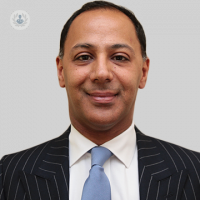Signs you may have anxiety: is it common?
Autore:Anxiety can be a common mental health problem. Most of us have anxiety and it serves as a useful purpose in telling us when something is wrong or when we are in danger. When it becomes sustained or it starts to distress people, at this stage doctors will consider it to be a common mental health problem.

What causes anxiety?
Anxiety is usually caused by a complex set of risk factors involving genetics, brain chemistry, personality factors, and life events. Often histories will have significant attachment problems from the early childhood, trauma events, threats during life such as financial problems, social, housing difficulties, and sometimes medical problems.
Is anxiety genetic?
Researchers have found that anxiety can be inherited like conditions such as allergies or diabetes. It runs in families and there is a significant component that does relate to genetics.
Is anxiety common?
Anxiety is common. After depression, anxiety is the second most common mental health problem seen in GP surgeries. The most common anxiety condition is social phobia. Around ten to fourteen per cent of the general population will have a social phobia at some stage. Other anxiety conditions that can be seen frequently include obsessive-compulsive disorder, and generalised anxiety disorder; which have a prevalence of around two to three per cent of the population.
What are the symptoms of anxiety
The symptoms of anxiety can broadly be categorised into two areas.
The psychological symptoms of anxiety which include fearfulness, feeling on edge, anxiety, panic feelings, and a dread of going about doing things.
There are also physical symptoms of anxiety which can include feeling tense in your muscles, having tightness in your breathing, sweating, having butterflies in your stomach, and generally feeling off-colour and nauseous at times. It is a condition that affects most parts of the body and most systems in the body. It can affect your scalp and could lead to hair loss. It can lead to visual problems. It can lead to heart difficulties such as tightness in your chest. It can lead to breathing problems. It can also cause changes in your bowel habits and waterworks. At times people will comfort eat to try and manage their emotions and at times it can also cause your muscles in your legs and arms to be very tight.
If you feel worried or concerned that you are experiencing anxiety, do not hesitate to book and see one of our specialists.


